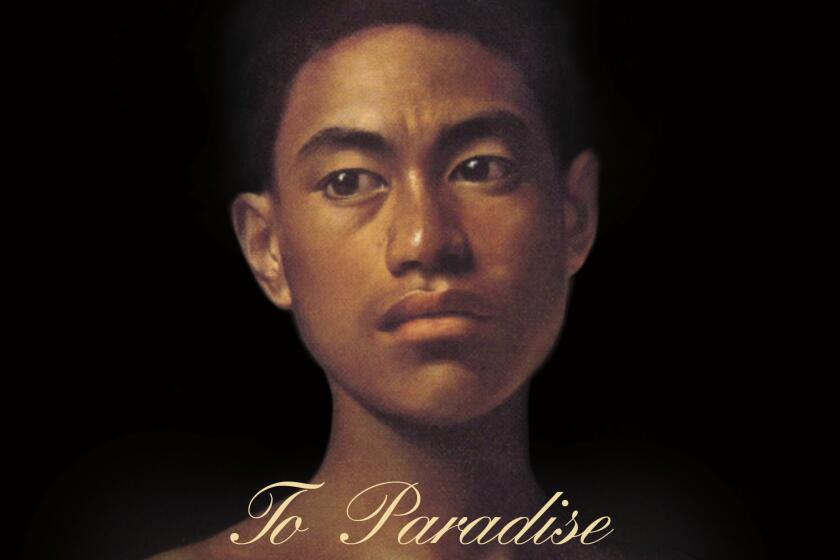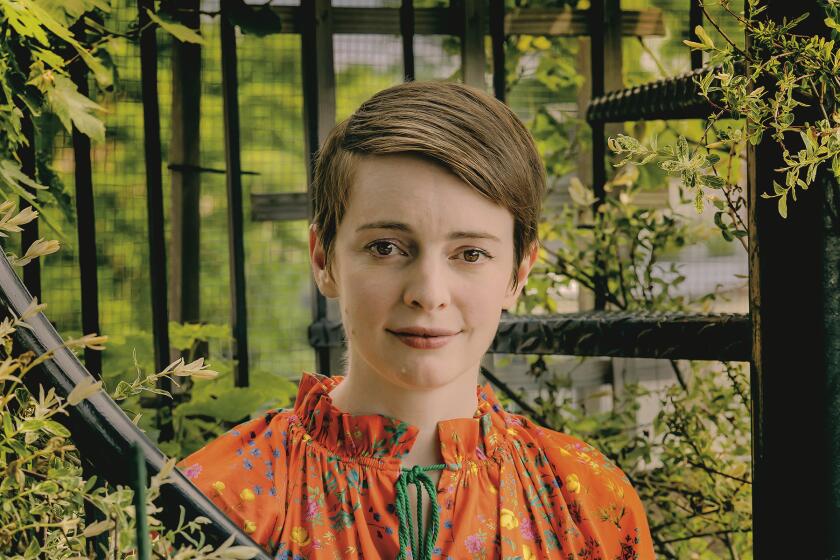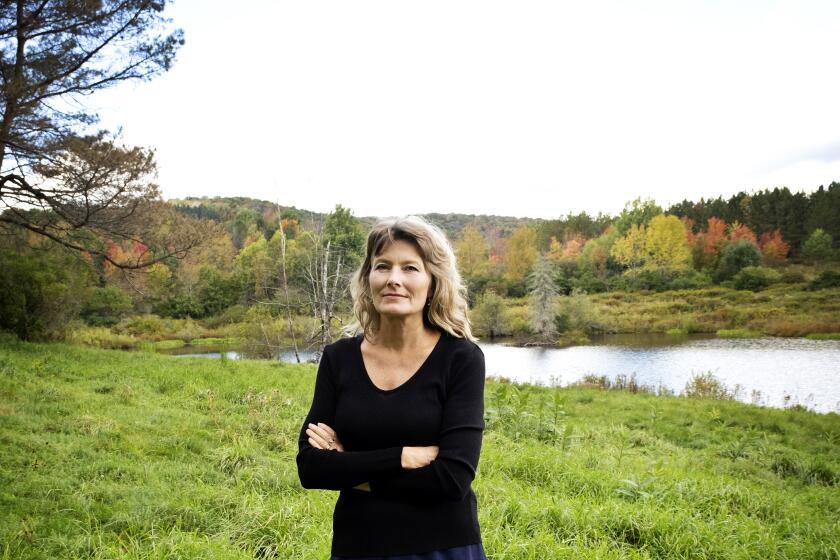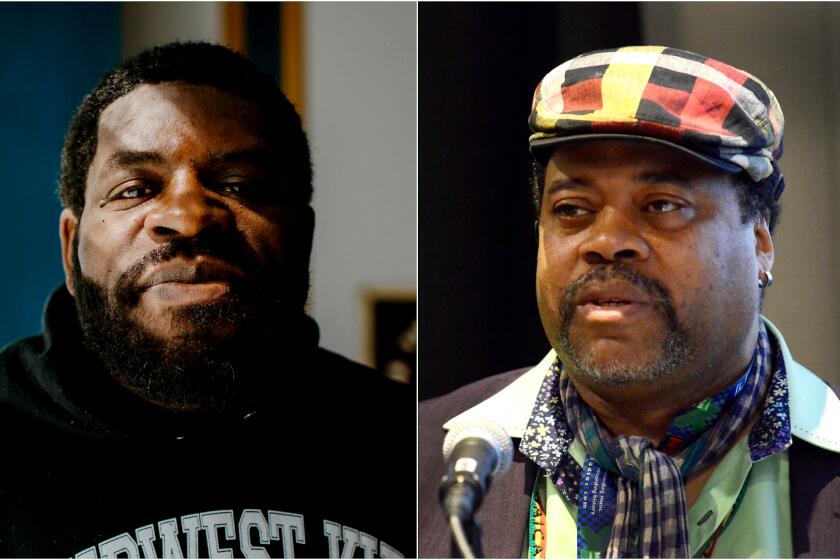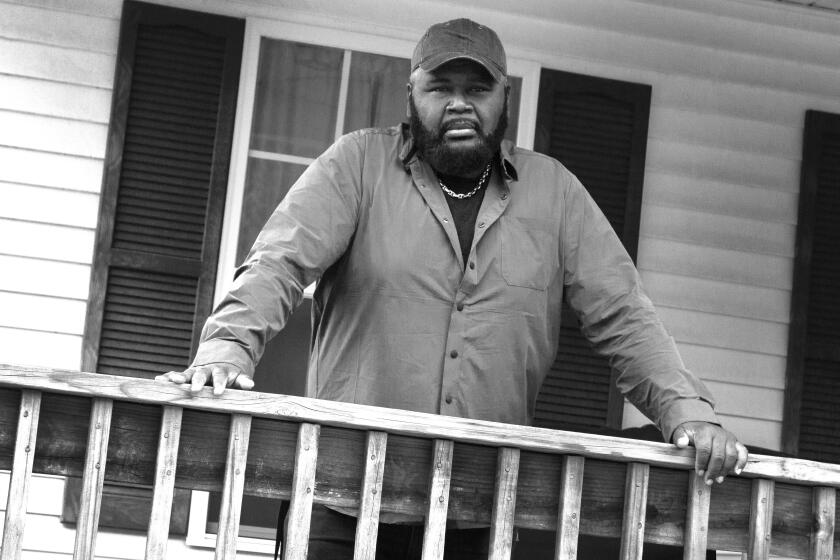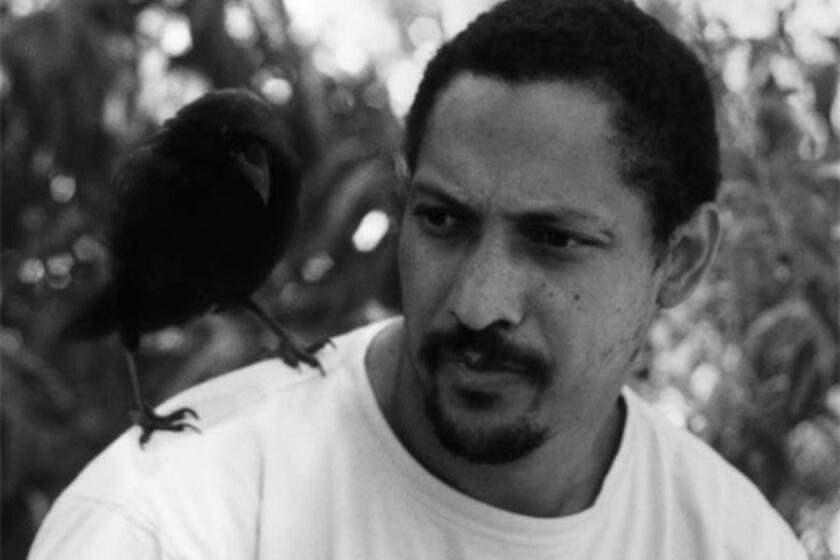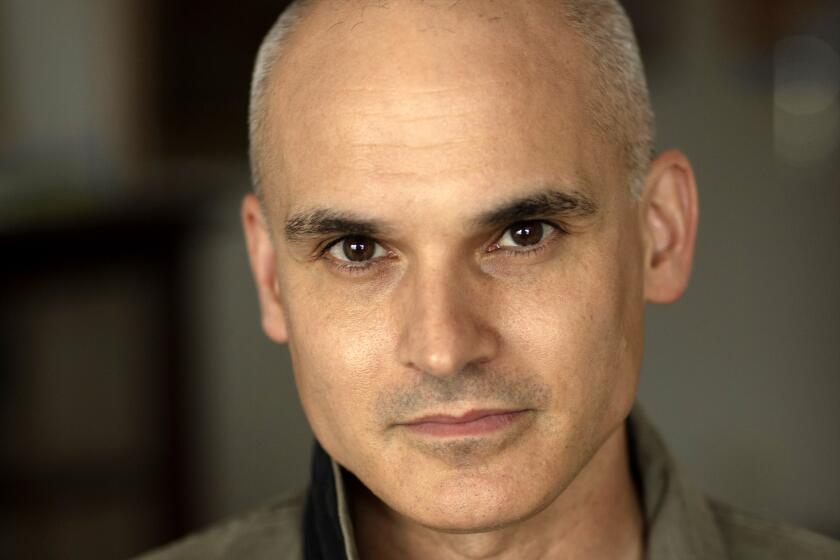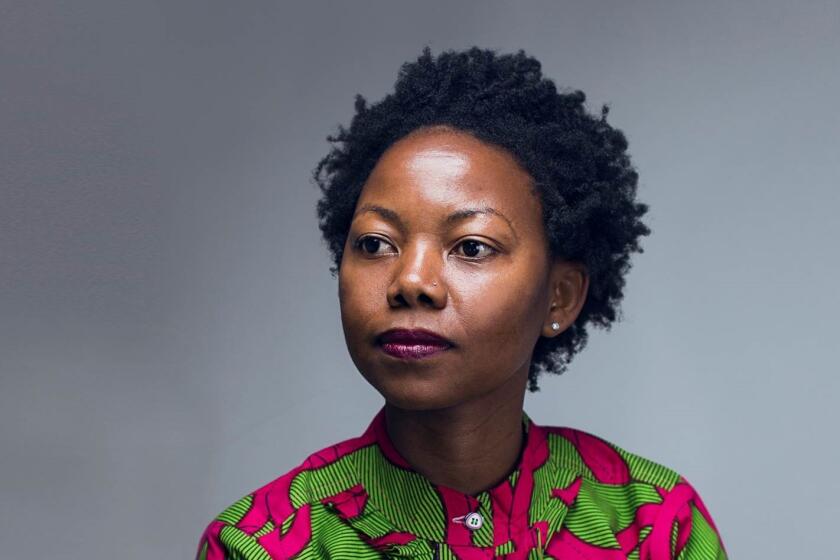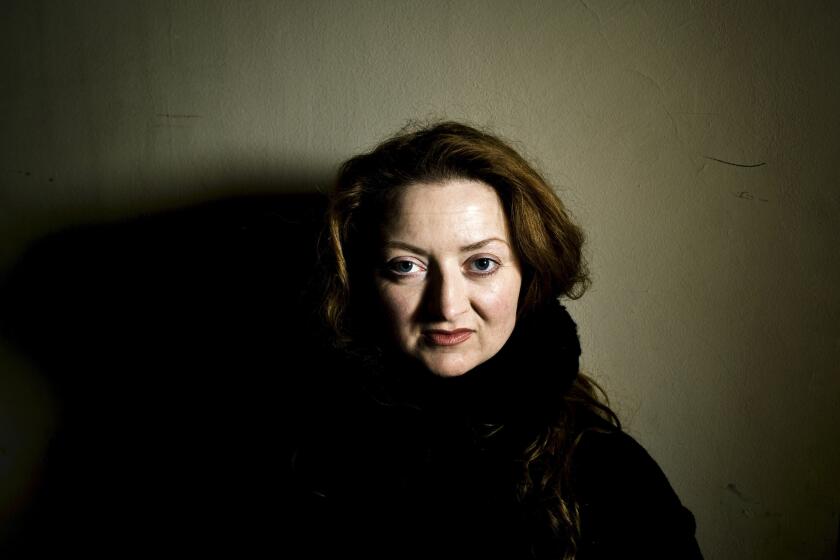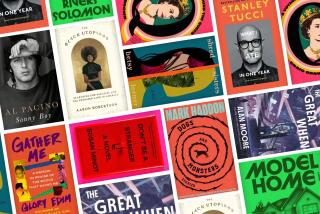A guide to the books on today’s big lists from Obama and the Booker Prize
When it rains, it pours.
On Tuesday, Barack Obama dropped his 2022 summer reading list just as the Booker Prize, the U.K.’s most prestigious literary award, announced the 13 books on this year’s longlist.
The books on both lists are diverse in every way, ranging from crime and speculative fiction to a sweeping history of the New York Knicks and an examination of democracies.
Every year, Obama releases his favorite books, music and films to his millions of social media followers, creating a flurry of online chatter and discussion. And the Booker Prize longlist generates similar excitement, especially since it opened up to include American titles (which dominate this year’s list). The Booker’s six shortlisted books will be announced in September and the winner on Oct. 17 during an in-person award ceremony.
How is a reader to sort through all these titles and compile a decent shopping list? The Times has you covered, having chimed in on many of the books and authors listed. Here’s what we had to say:
OBAMA’S PICKS
“To Paradise,” Hanya Yanagihara
‘To Paradise,’ Yanagihara’s follow-up to the trauma-filled blockbuster ‘A Little Life,’ works hard to addict readers but shirks the hard work of empathy.
Yanagihara’s highly anticipated third novel wasn’t our critic’s favorite. Divided into three sections spanning 300 years and set in an alternate version of New York City, “To Paradise” is a story about lovers, colonialism, pandemics and the false promise of utopia. Lynn Steger Strong praised it for its “Bigness” and its “sound and fury,” but ultimately said it felt “devoid of specificity or self-doubt or, indeed, of empathy.”
(“A Little Life,” Yanagihara’s previous novel, was a finalist for the Booker Prize and the National Book Award in 2015.)
“Sea of Tranquility,” Emily St. John Mandel
‘Sea of Tranquility,’ Emily St. John Mandel’s new novel, is as ambitious as ‘Station Eleven,’ again using sci-fi tropes to ask deeply human questions.
Among the most obvious contenders for Obama’s list (he had Mandel‘s “The Glass Hotel” on his 2020 list), this dazzling speculative novel, a sort-of sequel to the novel-turned-HBO max hit “Station Eleven,” shuttles readers across time and space — from Vancouver Island in the early 20th century to a colony on the moon 500 years later.
“Following a superb stylist like Mandel is like watching an expert lacemaker at work,” wrote critic Bethanne Patrick. “You see the strands and later the beautiful results, but your eyes simply cannot follow what comes in between. As in her best work, including ‘Station Eleven,’ she is less concerned with endings than with continuity. In ‘Sea of Tranquility,’ her vision is not quite as bleak, but it is as strong — I won’t say prophetic — as ever.”
“The Candy House,” Jennifer Egan
Jennifer Egan walks and talks — about ‘The Candy House,’ her sequel to ‘A Visit From the Goon Squad,’ and why she still believes in fiction and humanity.
Also on the list was another sort-of sequel, Egan‘s long-awaited follow-up to the 2010 Pulitzer Prize-winning novel-in-stories, “A Visit From the Goon Squad.” This one tells a story of human longing, history and memory, built around a device that can store people’s complete memories.
Lynn Steger Strong spent a day in March walking around Manhattan’s East Village with the author ahead of the book’s release. They talked about human contradictions (“the very same person is heroic and terribly selfish,” said Egan), the pleasure Egan aspires to give her readers and the more complicated advantages of growing older.
“A Little Devil in America: In Praise of Black Performance,” Hanif Abdurraqib
Greg Tate was part of a powerful tradition of Black criticism. Its inheritor is Hanif Abdurraqib.
Abdurraqib’s pan-cultural 2021 book of critical essays was a nominee for the National Book Award and the National Book Critics Circle Award. The sweeping collection explores Black art, music and culture — from “The Fresh Prince of Bel-Air” to Beyoncé and more.
In March, poet and essayist Abdul Ali wrote an essay for the Times praising Abdurraqib’s powerful writing and fresh insights as a Black cultural critic, marking him as a successor to the late critic Greg Tate.
“Razorblade Tears,” S.A. Cosby
“Razorblade Tears,” S.A. Cosby’s follow-up to the Times Book Prize-winning “Blacktop Wasteland,” follows two men hunting the killers of their gay sons.
A finalist for a Los Angeles Times Book Prize, Cosby‘s Southern thriller-mystery follows a Black man and a white man joining forces to fight a common enemy after their sons are brutally murdered.
Author and critic Paula Woods called it “a more emotionally raw affair” than his previous, bestselling “Blacktop Wasteland.” Though it’s riddled with violence, Woods also commends the book for its “great beauty” in describing “the grief of a community, in the fathers’ stirring awareness of the true meaning of love and even in Cosby’s reverence for the vibrant natural world.”
“Silverview,” John le Carré
Where to start with the novels of John Le Carré, who died Saturday, and where to go — from George Smiley to the semi-confessional “A Perfect Spy” and more.
Le Carré’s final book is a bestselling posthumous espionage thriller set in a small town on the English coast. After his death, the Times compiled a recommended reading list for those who were new to his work.
“Velvet Was the Night,” Silvia Moreno-Garcia
The Mexican-Canadian author of bestsellers ‘Mexican Gothic’ and ‘Velvet Was the Night’ was born and raised to be a genre-hopping, storytelling dynamo.
Hailed as one of the best books of 2021, “Velvet Was the Night” is a historical noir set in Mexico in the 1970s about two people’s search for a missing woman.
Earlier this year, book critic, editor and author Paula Woods interviewed Moreno-Garcia ahead of her latest, bestselling release, “The Daughter of Doctor Moreau.”
BOOKER PRIZE LONGLIST PICKS
“Nightcrawling,” Leila Mottley
Leila Mottley on her youth, her literary ambition and her debut novel, ‘Nightcrawling,’ based on a sex-abuse case that rocked the Oakland police.
At 20 years old, Mottley is the youngest author ever to be longlisted for a Booker Prize. Her debut novel, “Nightcrawling,” follows a 17-year-old whose family was torn apart by death and prison. To survive, she resorts to sex work, only to end up being sexually exploited by Oakland police officers. The book was inspired by a real-life scandal involving the Oakland Police Department.
On a sunny May afternoon, Mottley and Times books reporter Dorany Pineda (that’s me!) spent some time in Oakland’s Dimond Park talking about joy, hope and violence against Black girls.
“The Trees,” Percival Everett
In his new novel, “The Trees,” Everett mixes wordplay, farce and horror to spin a comic, deeply serious revenge story out of the Emmett Till lynching.
Everett‘s satire-inflected literary thriller takes aim at racism and police brutality, beginning with a series of murders in rural Mississippi. Critic Lorraine Berry called the book “a comic horror masterpiece,” praising the USC professor’s “enormous talent for wordplay. ... He leans on the language of outrage and hyperbole to provoke reactions a history book could never elicit.”
“Trust,” Hernan Diaz
‘Trust,’ by Hernan Diaz, is a Rashomon-like concoction of four stories about a hollow great man — fascinating and assured, but ultimately deflating.
“Trust” is a uniquely constructed story — really a set of four tales that contradict one another — set during the 1920s and the Great Depression, focused on a powerful and troubled family in New York City. Critic Hillary Kelly deemed “Trust” a promising and textured work of fiction but ultimately a disappointment, calling it a “wily jackalope of a novel” that “spoofs so much that it winds up spoofing itself. Novels must tell a truth, even when they don’t tell the truth,” she concludes.
“Oh William!” Elizabeth Strout
Strout’s latest novel, ‘Oh, William!,’ her third about the successful and heavily burdened Lucy Barton, is somehow both exclamatory and plainspoken.
“Oh William!” continues Strout‘s Amgash Series (following “My Name Is Lucy Barton” and “Anything Is Possible”). The novelist, who won a 2009 Pulitzer Prize for “Olive Kitteridge,” follows a former couple as they face their pasts and the secrets they kept.
“‘Oh William!’ is like coming home to a sensibility that is so smartly deployed it might go unnoticed,” wrote Kelly for the Times. “Strout does very little here that is new, and that is a notion to celebrate.”
“Glory,” NoViolet Bulawayo
NoViolet Bulawayo recalls rejoicing when Zimbabwe’s dictator was deposed — and then tackling its slide back into tyranny with the novel “Glory.”
NoViolet Bulawayo‘s latest novel is a rollicking satire about the demise of an oppressive regime and what emerges in its wake. Earlier this year, journalist Andersen Tepper spoke to the Zimbabwean Californian author, whose debut novel, “We Need New Names,” was on the 2013 Booker shortlist. They spoke about confronting Zimbabwe’s ghosts, trauma and the writer’s imperative to “take back our lives.”
“Small Things Like These,” Claire Keegan
In Claire Keegan’s slim, powerful ‘Small Things Like These,’ a man confronts a Magdalene Laundry, one of Ireland’s abusive homes for ‘fallen women.’
“Small Things Like These” expands on the Irish novelist’s well-established talent for prizewinning short stories of keen social insight. Set during the 1985 Christmas season, the novel follows Bill Furlong, a coal merchant in an Irish village who makes a troubling discovery.
“For all her earlier accolades, ‘Small Things Like These,’ Keegan’s first novel, enters the world this month with the shocking force of a debut,” wrote freelance critic Bethanne Patrick. “With its main text running to just 70 pages, it might have been deemed a novella, but it earns the greater designation.”
More to Read
Sign up for our Book Club newsletter
Get the latest news, events and more from the Los Angeles Times Book Club, and help us get L.A. reading and talking.
You may occasionally receive promotional content from the Los Angeles Times.
